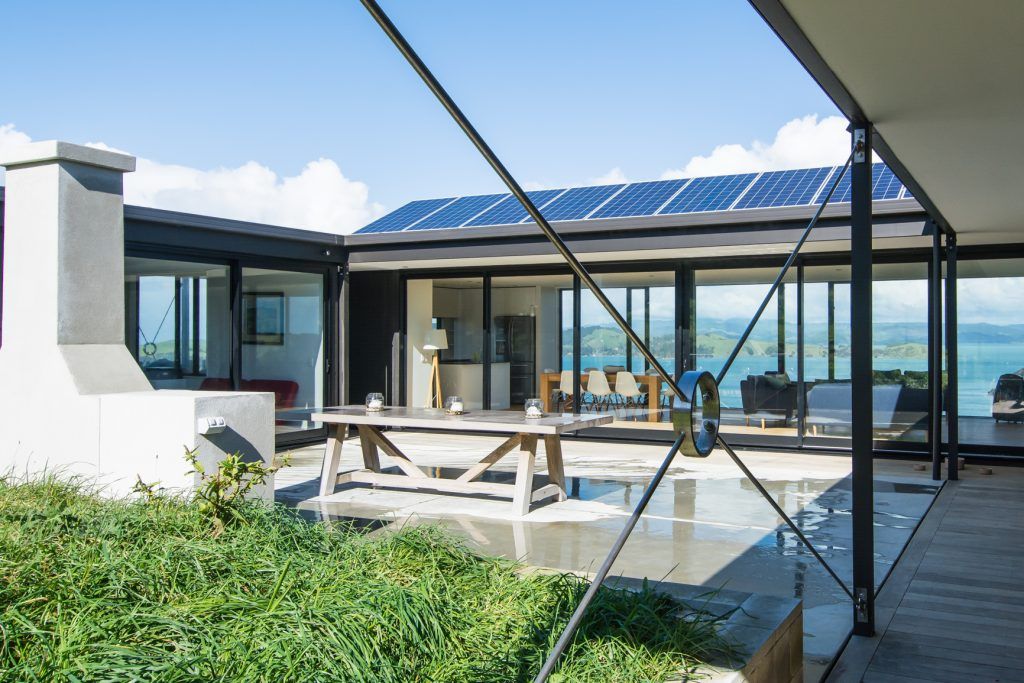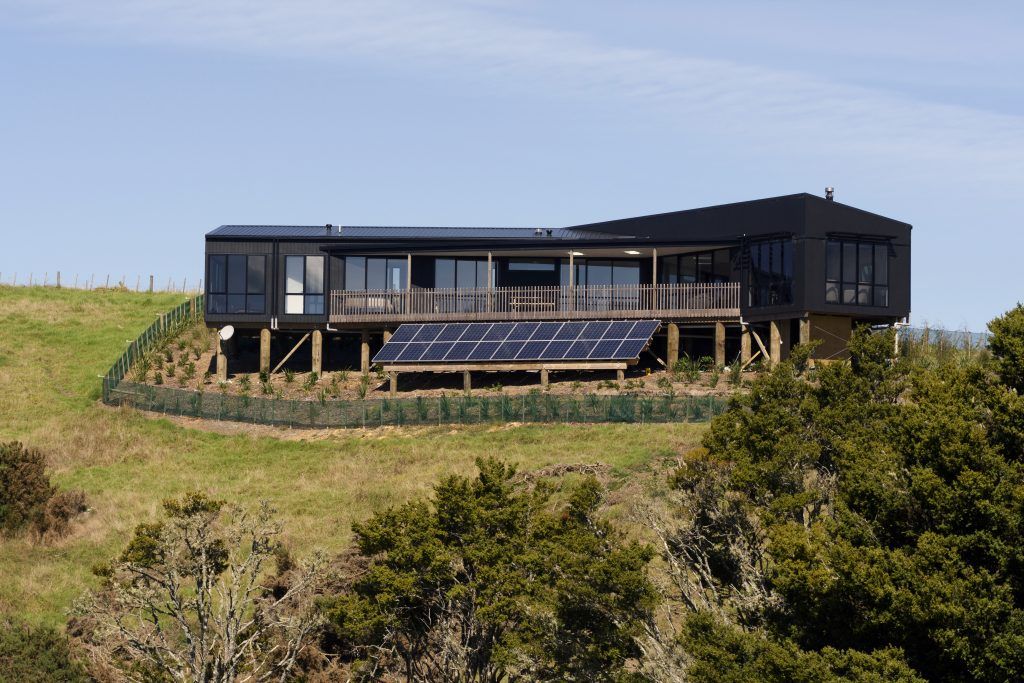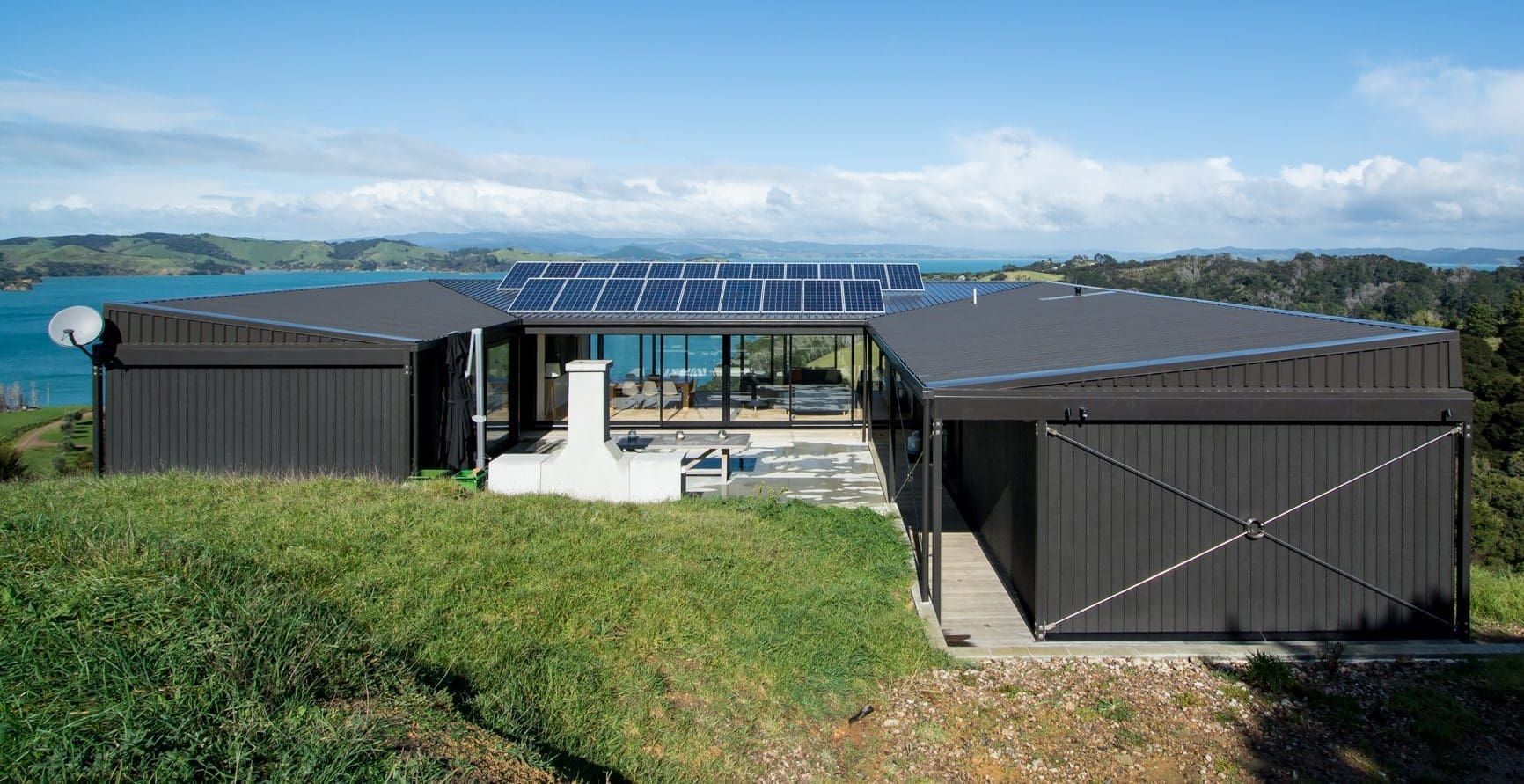Three Ways To Get Your House Off The Grid
In uncertain times, people crave stability – and in the first instance, most look for it at home. Those who already have a stash of pantry staples squirreled away (and let’s face it, a couple of bottles of wine too) as per advice in the civil emergency guidelines, or who have nurtured a veggie garden in the backyard, might be smugly one step ahead of the rest. But what if there’s no electricity to cook up the kai? Cold baked beans anyone?
“By far the biggest reason that people consider installing solar energy is to have some resilience,” says Tim Dudek, owner/director of Solarcraft – a company that is a member of SEANZ (the Sustainable Electricity Association of New Zealand) and has been designing and installing solar systems nationally and internationally since 2010.
Harnessing free energy from the sun is the easiest way for the majority of homeowners to take some personal responsibility for their power needs – and recently, Box™ has noticed an upswing in clients contemplating the solar path. This can be tricky territory to navigate so Box™ work alongside them in collaboration with solar providers to assess the options and come up with a personalised solution. Here’s the thing: it’s not just new-builds on rural properties or remote holiday homes where solar makes sense – we need only rewind to 1998 when for five weeks the power supply to Auckland’s CBD was compromised and 70,000 people who worked in the city had to make alternative plans. Against this backdrop, solar is a hit in the city too.

Staying up and running should the worst happen and a mechanical or natural disaster cut the power supply from the electricity grid is the prime reason homeowners go solar – cheaper power bills is another. Doing the sums (ie return on investment over the life of the system) is an important step (and takes expert calculations). “It can be as little as seven years for you to recoup the investment in lower power bills,” says Tim.
Once you are convinced that solar is the best thing under the sun, here’s what to consider next.
Get real…stay real
Tim Dudek from Solarcraft tries to keep the solar conversation grounded. The key is to navigate the benefits and pitfalls of solar-energy production, storage, usage and cost. “Without a system that has a battery, for instance, you won’t be able to keep the power generated during the day for use at night – a time when busy families, returning from work and school, need it most,” he says.
In general there are three ways to proceed:
Grid-tied solar panels
Usually installed on the roof but only serve the power load when actually producing electricity ie: middle of the day when sun is highest in the sky. Many modern appliances can be programmed to kick in to take advantage of this – e.g. the hot-water system, pool heating, dishwasher or washing machine. This type of system might also suit people who work from home or retirees.
Hybrid solar panels with battery back-up

If you want to store power for use at night, you’ll need a battery. “Battery technology is getting cheaper and more flexible,” says Tim. “You can start with a small system then plug in more batteries as required.” But, he explains, you will need a larger system to generate enough electricity to create excess for storage so the cost increases proportionately.
Completely off-grid in the city
This is not recommended unless your new home is half a kilometre from the utility hook-up point. “To store up enough power to last 3-5 days (say in winter), requires a system with enough panels and significant battery-storage capacity. That’s going to mean a lot of capital tied up just to have power in the winter. In summer, the excess power generated is pretty much wasted – gone,” argues Tim.
Building a new home comes with many exciting opportunities – not the least to futureproof your family’s energy requirements. In that respect, solar power is certainly worth close examination. But don’t be blinded by the science. Box™’s is to talk to them first and they’ll put you in touch with the professionals to make an informed, fact-based decision. In a world gone crazy, your home is a sanctuary. Here comes the sun. And it’s all right.









